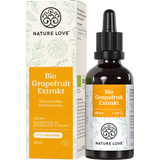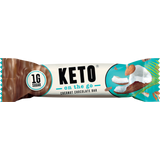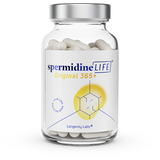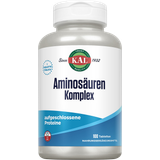Nutritional Supplements for Autumn and Winter
In winter we lack energy, are sick more often and are more prone to depression. Dietary supplements might help with these issues.
There are many reasons why we don't feel our best in winter. Some of these reasons could be:
- lack of sunlight: the days are short, and sunlight is precious and scarce. We tend to head to work when it is dark and go home when it is dark.
- too little exercise: if you like to do sport outdoors in the summer, you may miss these sports in the winter. It's cold, the weather is bad, we often skip our workouts.
- too much of the wrong food: especially when it's cold out, we reach for quick, hot food.
- stress: as stress in the workplace steadily increases, stress increases, which causes illness.
- influenza infections: lower temperatures and overheated rooms increase the risk that you'll catch the flu
There are a few dietary supplements that can help reduce these risks. They are:
Vitamin D: The body needs this vitamin to process calcium and incorporate it into the bones. It also strengthens the immune system. Especially in autumn and winter, supplementing vitamin D is a good idea. Normally 90% of the vitamin D required by the body is produced by the sun and is absorbed through the skin. The remaining 10% is obtained from food.
In autumn and winter the days are not only shorter but the solar intensity decreases as well. The body produces less vitamin D, leading to an under supply. People over 60 years of age are considered risk group. As the vitamin D your body produces is drastically reduced.
Vitamin C: Vitamin C strengthens the immune system, protects against free radicals and reduces oxidative stress. Contrary to popular opinion, taking Vitamin C preventatively does not prevent infection. However, it does help if you're already sick. 200 mg per day alleviates the symptoms of colds and shortens their duration. Nevertheless, vitamin C should be taken regularly because it is essential for the body.
Folic acid: is important for cell division and is abundantly found in vegetables. In winter, we may not receive enough. Folic acid is extremely sensitive to heat and light. As we consume more hot foods in winter, or consume a smaller variety of vegetables due to the fact that not all vegetables are in season, consider supplementation. We recommend supplementing 400 micrograms per day.
Zinc: This trace element stimulates certain parts of the immune system and protects against colds, because viruses cannot easily attach to the nasal mucosa. In addition, it inhibits the growth of virus, thus preventing colds.
Iron: This trace element stimulates the immune system. For the absorption of iron, a good vitamin C supply is important as it helps our bodies absorb the iron. Important: Do not drink too much coffee or black tea, these drinks inhibit iron absorption, making us feel tired.
All these points are arguments for dietary supplements. Keep in mind, however, that these are not a substitute for a balanced, healthy diet. Dietary supplements supplement the diet but do not replace it.
Before starting a new supplement, please consult a doctor or pharmacist.
Latest reviews
-
 4.6 (7)
4.6 (7)Nature Love Organic Grapefruit Extract, 50 ml
- Gentle cold extraction
- Made from grapefruit seeds & peels
- One bottle lasts for 3 weeks
€ 16,49 (€ 329,80 / l)Delivery by May 07
-
 4.3 (3)
4.3 (3)Ketofabrik Chocolate Coconut Bar, 1 bar
- 1g sugar per bar
- Reduced sugar alternative
- 3.6g net carbs per bar
€ 1,59Not available at the moment
-
 4.7 (11)
4.7 (11)Longevity Labs spermidineLIFE® Original 365+, 60 capsules
- Approved EU wide as a novel food
- From Austria
- No artificial dyes or flavours
€ 69,49Delivery by April 17
-
 € 39,99 (€ 285,64 / kg)
€ 39,99 (€ 285,64 / kg)Delivery by April 17
